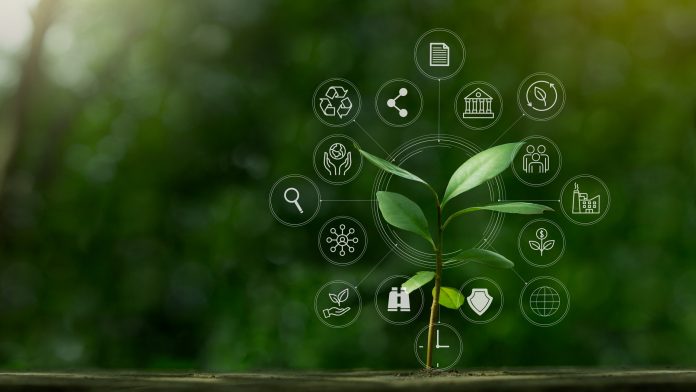Climate change remains one of the most pressing issues humanity has to deal with today. In this article, we discuss how AI combats climate change
Firstly, rising temperatures have already severely decreased biodiversity and displaced communities across the world
While there is no clear-cut solution to global warming, some of the world’s brightest minds are collaborating with AI consultants to find ways to use AI to tackle climate change.
How AI combats climate change and lessens its impact
With enormous amounts of climate data available today, it becomes possible to accurately predict nature’s next move and how it will translate to environmental changes.
In this article, we will look at the most feasible applications of how AI can combat climate change.
Recycling textile to tackle climate change
Regardless of the industry, manufacturing organisations produce waste that increases greenhouse gas emissions unless recycled. The problem is that each type of material requires a unique recycling method and a substantial workforce that’s not always easy to find.
AI can help automate the recycling of many materials, including textiles. One California-based startup, Refiberd, uses AI and robotics to sort fabrics by material automatically.
With the help of a state-of-the-art image recognition model, the system can accurately detect fibre composition in textile waste, including the minor amounts of spandex, nylon, and other materials that are impossible to recycle. The startup founders claim that their proprietary technology can help turn 70% of textile waste into high-value recycled textiles.
Decarbonising real estate
Real estate is another significant contributor to climate change, accounting for 40% of carbon emissions globally. Fossil fuels like natural gas and coal are commonly used for electricity generation, HVAC systems, and heating, emitting CO2 and other greenhouse gases.
But with large amounts of real estate energy consumption data, we can use AI to optimise energy consumption on a large scale.
Mortar.io, a London-based company, provides an AI-powered modelling and simulation platform that digitises and automates the management of HVAC, lighting, and heating, helping decarbonise buildings.
Using Mortar.io, property managers can monitor all building systems from a single web portal and easily create optimal lighting and energy consumption plans.
Decarbonising enterprises
With a global goal of achieving a net zero carbon footprint, many companies have already gone through a complicated process of assessing their carbon footprint.
But there’s a following, even more challenging step, to create an actionable plan to decrease carbon emissions that won’t negatively impact their bottom lines. Since data is the critical element here, AI is the most potent technology for this task.
Watershed is one of the most significant enterprise carbon accounting platforms backed by the world’s most renowned venture capitalists.
Watershed’s AI-based platform ingests utility bills and supply chain data to provide insights into renewable electricity sources, vendor partnerships, and any other critical business choices that can minimise a company’s carbon emissions.
Walmart, Doordash, Blackrock, Airbnb, Warby Parker, and other big enterprises are already on board with Watershed.
Predicting weather through AI
While some companies are trying to lower the environmental impact of their operations, others have to deal with constantly changing climate conditions.
Businesses in various industries must make incident response plans when climate-driven disruptions occur. For example, extreme heat severely impacts the weather-dependent production of foods and products, rising sea levels can flood the facilities, and increased hurricane activity hinders property development.
Many climate intelligence startups that aim to mitigate these adverse effects of climate change have emerged recently.
These companies use AI tools and predictive analytics in one way or another to analyse large amounts of publicly available, synthetic, and proprietary data to predict weather risks.
For example, One Concern, which smartly proclaimed itself as a planetary-scale resilience software platform, provides businesses in finance, insurance, real estate, and beyond with tools to assess risks associated with climate change.
The company offers organisations the AI-powered digital twin of the planet to accurately estimate disaster exposure for their facilities.
Whether it’s the probability of weather-induced power outages in a specific region or supply chain disruptions caused by extreme weather conditions, One Concern can help organisations evaluate these risks from a business standpoint and make evidence-based decisions.
What’s next for AI and climate change?
In the last few years, enormous amounts of capital have flown toward combatting climate change, so it’s safe to say that we’ve reached a tipping point of its severity.
The world’s most giant corporations continue to announce their new top priority publicly — going net zero emissions in the shortest time possible. In the capitalist-driven world, this means that the problem of climate change has finally become an apparent global economic risk that will impact the absolute majority of businesses worldwide.
AI and AI consultants will play a pivotal role in this new global environmental initiative. Organisations that have already embarked on a sustainability journey commit substantial amounts of resources to integrate AI and related technologies into their established processes.
And, as time passes, we’ll see the rest of the business community follow suit.














